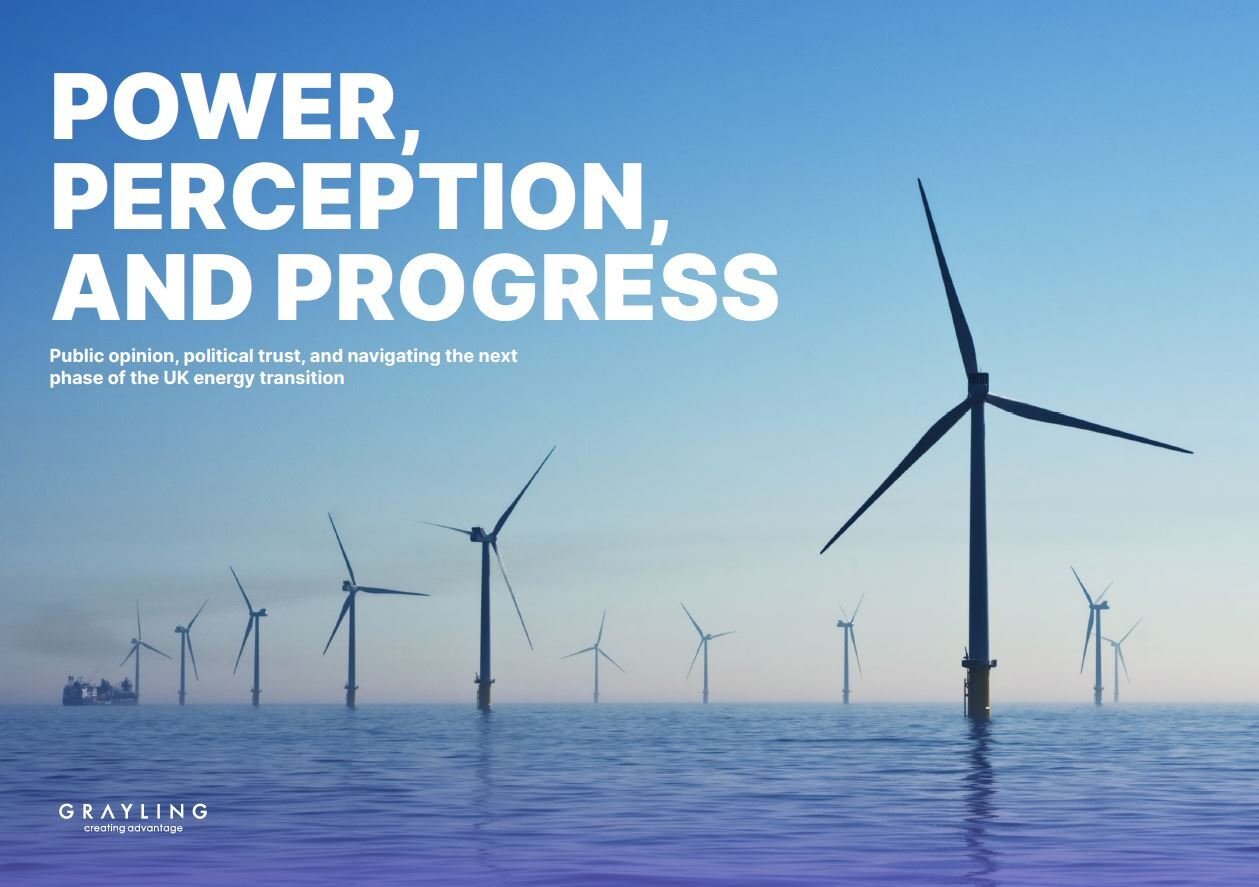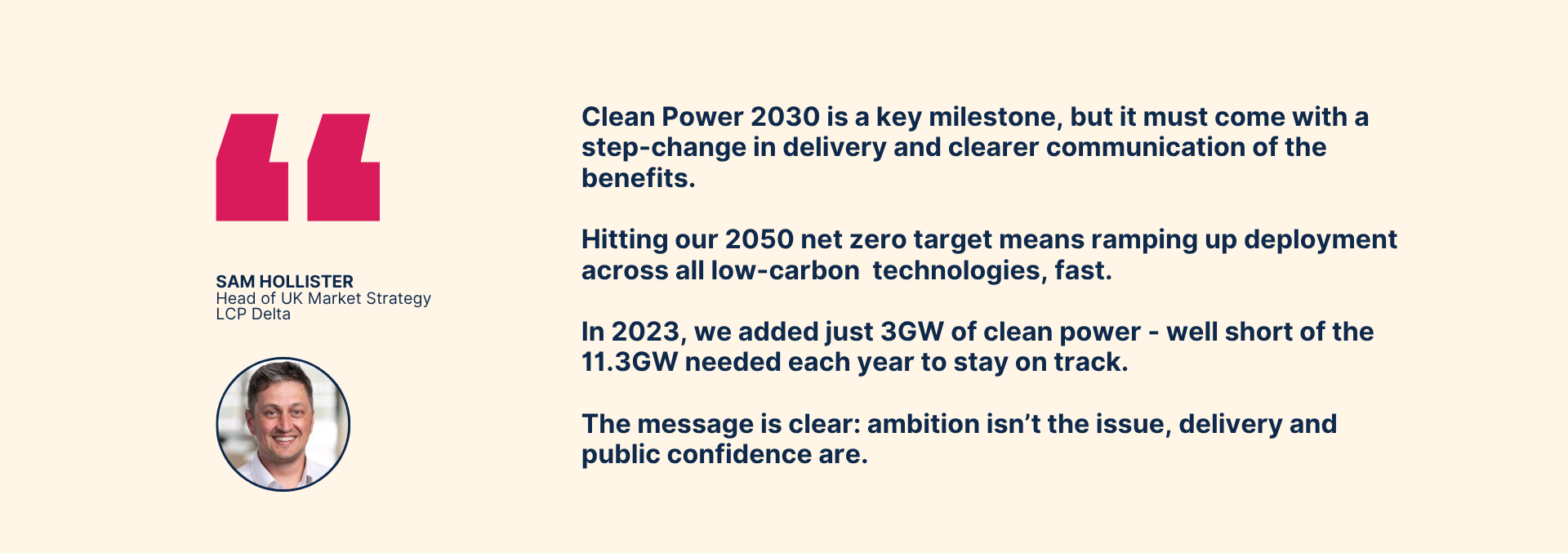about grayling energy
Grayling Energy is Grayling’s dedicated energy division, comprising a UK-wide team of experts across public affairs, communications, planning and infrastructure, creative, digital and data analytics. It’s rooted in Grayling’s unmatched UK-wide footprint and a long-standing track record of supporting clients across the energy value chain - from energy generation projects and transmission infrastructure to end-use and behavior change.
The new unit will provide clients with a combined communications, policy and stakeholder engagement offer that will support them to translate complex policy and technical challenges into accessible, high-impact campaigns tailored to policymakers, communities, and the media.


SENTIMENT AND INVESTMENT SIGNALS
Business confidence in the UK’s energy transition is increasingly conditional. While ambition remains high, our survey of more than 70 senior leaders across energy, industry, and finance shows that political fragmentation, uneven delivery, and complex investment mechanisms are eroding belief in long-term stability.
Rising costs, system constraints, and crowded policymaking reinforce the sense of fragility, with confidence frequently described as vulnerable to delay or mixed signals. The transition is now shaped by mounting system pressures and hardening public expectations on affordability - creating a risk that ambition outpaces credibility unless government and industry provide clearer, more consistent signals to unlock capital and maintain momentum.
INSIGHTS FROM GRAYLING ENERGY

power, perception and progress:
THE UK'S ENERGY TRANSITION CROSSROADS
Public confidence in the Clean Power 2030 target is faltering. Polling reveals deep doubt over the feasibility, fairness, and regional benefits of the energy transition. While government and much of the sector remain fixated on the mechanics - market reform, grid connections, spatial planning - the more fundamental risk is belief.
Our exclusive data shows the energy transition is increasingly shaped by complex political and social fault lines - emerging at a time when both the energy system and political leadership are under pressure to deliver faster, at greater scale and with more transparency than ever before.
INSIDE THIS REPORT
key themes at a glance
-
Legitimacy gap: Most of the public doubt that Clean Power 2030 is achievable - let alone fair.
-
Costs before carbon: Cutting bills and securing supply continue to trump climate goals in public priorities.
-
Zonal pricing risks: A postcode lottery with safeguards could undermine support for reform.
-
Jobs resonate when they are rooted locally: The public favours clean energy jobs over protecting legacy industries, but support depends on visible, local benefit.
-
Consent is conditional: Communities want to be respected, rewarded, and meaningfully involved
Insight-packed and polling-backed, this report draws from leading analysis and real voter sentiment to inform the next phase of UK energy strategy.
.png?width=600&height=400&name=18%20-%2024%20(1).png)













